Economic Outlook For 2023: 10 Tech Execs Weigh In
CRN speaks with 10 solution provider executives about their economic outlook for 2023, as some economists have predicted a recession ahead. Do they see the technology industry as susceptible?

With a potential recession predicted for 2023, CRN spoke with 10 solution provider executives who gave their predictions about how the economy next year will play out in the IT world.
“Economic downturns are not new,” said Tanaz Choudhury, president of Houston-based TanChes Global Management. “Planning for it should be second nature for entrepreneurs.”
Many IT executives CRN spoke with said their technology services and solutions are far too important to customers of all shapes and sizes to be significantly impacted by a slowdown in the general economy due to issues such as inflation.
“The technology industry is greater than 10 percent of the global economy and growing at an accelerated rate,” said Michael Haley, co-founder and partner at Alpharetta-based Edge Solutions. “ There are always opportunities for growth as companies innovate and transform their businesses through technology.”
[Related: HPE CEO: Why ‘We Are The Market Leader Of Raising Prices’]
However, other channel partner leaders are a bit more nervous about the economy in 2023.
“It’s going to be a challenge for sure. There’s a lot of insecurity,” said Robert Schaeffer, president and COO of Orange, Calif.-based CB Technologies.
Economy Expert: A ‘Modest Recession’ To Hit In 2023
Douglas Holtz-Eakin, a former chief economist for the President’s Council of Economic Advisors under President George W. Bush, told CRN he expects a modest recession to hit during the middle of 2023 due to the Federal Reserve increasing rates, continuing inflation and uncertainty ahead with China and with Russia’s war on Ukraine.
“I would say that by the second and third quarter of next year—the middle of next year—the chances of a modest recession are quite high,” said Holtz-Eakin, during his keynote at the XChange Best of Breed 2022 conference this week. “Personally, I put it at about 75 percent [chance of happening].”
With a modest recession cloud on the horizon, Holtz-Eakin believes the IT industry is in good shape.
“So I’m worried about a recession when the business community falls,” said Holtz-Eakin. “[IT solution providers] are really the canary in the coal mine. When they start seeing it get weak, then we know we have a problem.”
CRN interviewed 10 technology executives asking them their economic outlook for 2023. Here’s what they had to say.

Manak Ahluwalia
CEO
Aqueduct Technologies
Waltham, Mass.
A lot of us have contracted revenue going out multiple years at this point in time between software subscriptions and managing cloud services. So a bump in—from a recession perspective, for a year or 18 months—isn’t going have the same level of impact as it would be if we were completely capital intensive. The forward-looking vision for us is pretty good.
There’s also a significant backlog of orders that were placed this year that are falling into 2023. What we’ve typically seen in these types of recession cycles, even if it slows for the next year, the compounding of the backlog falling into next year and all their recurring revenue contracts are still there. And because customers have made so much of a pivot towards software and subscription cloud services, it’s also not like they can delay a purchase. They’ve got to continue to operate those specific platforms.
The amount of impact is probably muted to some degree.
A prolonged recession, multi-year recession, would have a little bit of a different impact. A lot of this right now seems to be course correcting of just a significant amount of cash that was put out into the economy in general, and then trying to curb inflation.
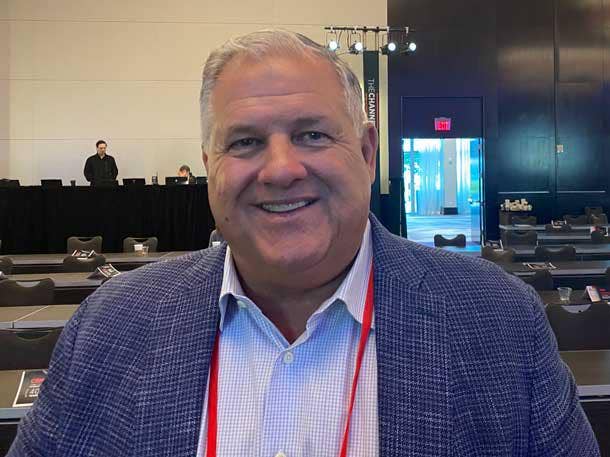
Robert Schaeffer
President and COO
CB Technologies, Inc.
Orange, Calif.
It’s going to be a challenge for sure. There’s a lot of insecurity.
We listen to a lot of macroeconomic folks that are telling us to buckle down, so we’ll see what’s going to happen. My concern is obviously for IT spend in IT invest, what’s going to happen there. Fortunately for us, we don’t focus as much on it anymore.
We focus on IoT and on the operation side of the house. So folks are still really interested in the efficiencies that brings production to their company to do more with less.

Tanaz Choudhury
President
TanChes Global Management
Houston
Economic downturns are not new. Planning for it should be second nature for entrepreneurs.
If they’re not doing it, they better start planning and then execution of that planning. That needs to be laid out in writing.
When you are in a dire strait, you are not thinking the way you should be thinking. Borrow money when you don’t need it—always.
Have your credit lines assessed when your cashflow is at the highest is some great advice someone gave me once. This is me paying it forward: always borrow money when you never need it. You may need it someday.
Have the mentality of saving. You need to know how much you need to run your business for six months to a year. Because if we learned one thing from the pandemic: it’s not going to be two weeks.
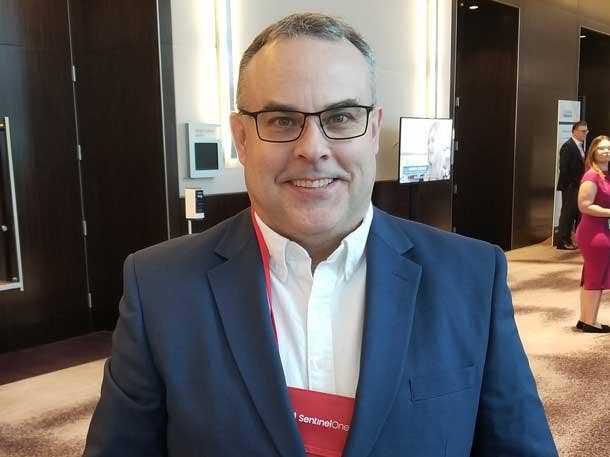
David Cox
General Manager, Midwest
Overview Technology Solutions
Ronkonkoma, N.Y.
I can speak to the Midwest economic outlook, and it is good. It isn’t going to be as good as pre-pandemic yet, but certain verticals are showing very solid growth.
Manufacturing has seen a bit of a downturn, but most other verticals are stable or getting stronger. At Overview, we have vertical strengths in manufacturing, financial services, public sector and other areas.
In almost every case I’ve seen, holding back our clients in the Midwest is the shortage of available talent.
Yes (we are looking at raising prices). The need for additional layers of security alone have driven costs higher. That coupled with the cost of managing those tools requires that we raise prices. Customers have understood the price changes and have been mostly accepting of the new prices.
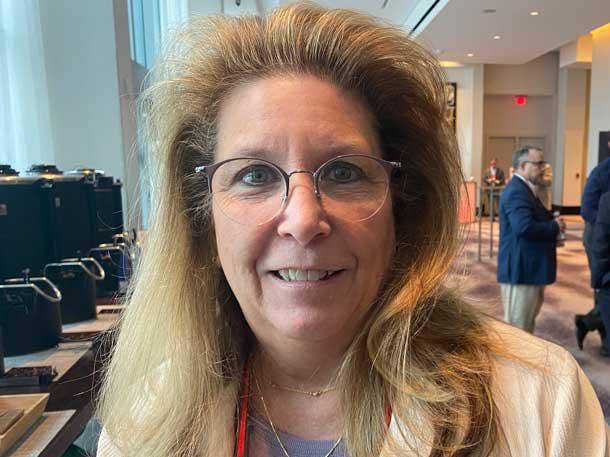
Patty Apple
Vice President of Marketing
BlueAlly Technology Solutions
Cary, N.C.
This has been a topic of discussion for quite some time. We are hoping the economy holds steady and that inflation eases off.
We have not seen a downturn. We actually did well during COVID because the demand was there. So we leveraged on that.
We’re hoping to hold that steady and move into new markets. We are always looking for new industries that are coming on board that maybe have been generated from COVID.
We look for people who are maybe combining into communities and help them as well, like broadband communities and networking communities.
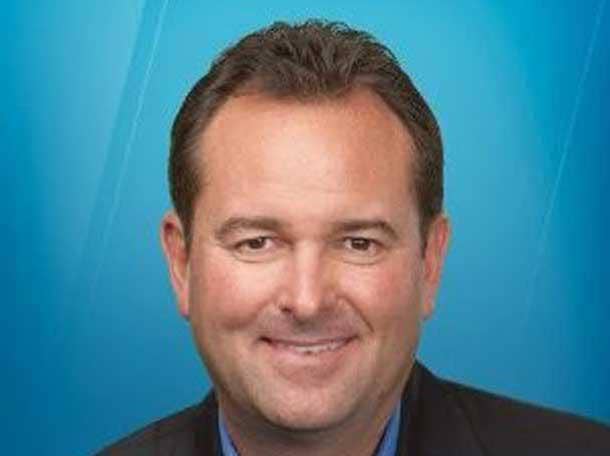
Joe Quaglia
President
Trace3
Irvine, Calif.
We’re obviously being as frugal as possible. You don’t know what’s going to happen. You just know you have to be able to anticipate it.
What we’re also doing is coming out with solutions for the challenges that we think our clients are going to be faced with, in terms of budget pressures, and how we can help them overcome those inflationary challenges.
Managed services for example. Staff augmentation. If they don’t have the skills and the people to do the work, they can leverage Trace3 to help them do that.
It can be help with moving CapEx expenditures to OpEx. Instead of buying and doing it yourself, maybe you’re doing that through a managed service that we can provide them help on as they go through this with us.

Michael Haley
Co-founder, Partner
Edge Solutions
Alpharetta, Ga.
I believe Edge Solutions is in a good position for growth in 2023. The technology industry is greater than 10 percent of the global economy and growing at an accelerated rate. There are always opportunities for growth as companies innovate and transform their businesses through technology.
Secondly, we feel very fortunate to be in Atlanta and headquartered in Alpharetta, the technology center of the South. Atlanta is the epicenter of many growth industries including FinTech, Media and Entertainment, Bioscience, Supply Chain Logistics, and the explosively growing sector of Clean Energy. Money magazine recently rated Atlanta as the best place to live in the U.S. Georgia’s business climate has been ranked No. 1 in the nation for the eighth consecutive year by Site Selection, and Area Development.
We we’re founded in 2008, during and economic downturn. Our belief then and now, is there is always opportunity regardless of what’s going on in the overall worldwide economy. So my outlook for 2023 is very optimistic.

Ron Dupler
CEO
GreenPages Technology Solutions
Portsmouth, N.H.
When we look at the economy right now, first of all, business is strong.
That said, me and my team at Greenpages are keeping a very close eye on leading edge indicators. We definitely have concerns.
I think many people are sort of waiting for a (slowdown) and understand we’re probably going to be in a more challenging climate in 2023 and beyond.
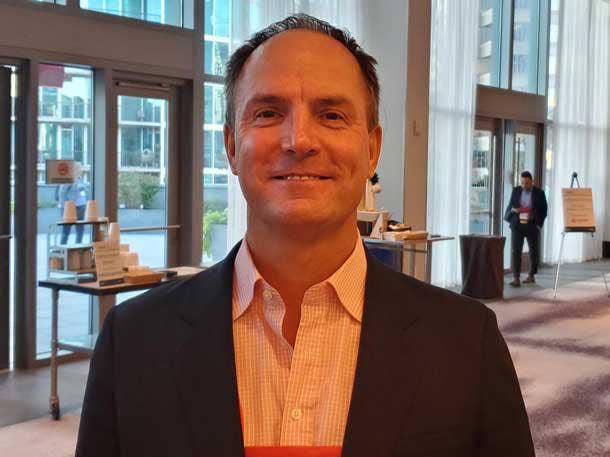
Dale Shulmistra
Business Continuity Specialist
Invenio IT
New York
Most of my clients are still spending. We’re still seeing some CapEx.
We haven’t seen a slowdown. And we have clients all across North America, Canada and the US. We still see spending in different regions.
That said, I’m probably more pessimistic, internally in what I sense in 2023. I do foresee some slowdown.

Phil Walker
CEO
Network Solutions Provider
Manhattan Beach, Calif.
Organizations will be shifting their budgets and resources in 2023 to more customer experience-driven technology, which will drive innovation and security. That modernizing infrastructure is key to increasing your business agility.
We are actually lowering prices. We see it as a way to capture market share and net new growth.
We moved talent to rural areas where our people cost is lower. … Platforms are allowing us to lower our costs.
A few vendors gave us better deals and margin, giving NSP the ability to provide a higher level of service at a lower cost. Admin jobs have been moving to customer facing roles.